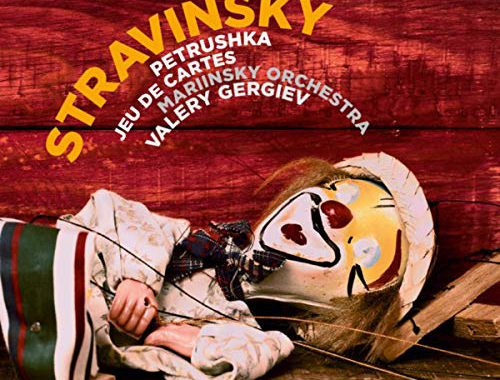Prom 1, BBC Symphony Orchestra & Choruses, Oramo (Review)
The 119th season of BBC Proms opened not with a bang but with barely a murmur. A thrumming, like the beating of tiny insect wings, like the hum of summer, looked towards not just the season ahead but eternity. Julian Anderson’s setting of words by the mystical 19th century naturist Richard Jeffries had a syncopated, Spiritual-like, lilt to it – but the idea that now is the only eternity we ever really know meant that each bar was potentially a bar too many. Harmony crested once like a tidal surge from the Britten and Vaughan Williams to come but its most striking feature was a peremptory cut-off before hearts and minds could even contemplate “what next?”
The answer to that was yet another “Dawn” on the Suffolk coast. Sakari Oramo – making his debut as Chief Conductor of the BBC Symphony – painted the Four Sea Interludes from Britten’s Peter Grimes in translucent watercolours, quietly atmospheric and with an acute ear for the incidental. The lyricism of the orchestral heartland of Britten’s greatest opera was rendered more poetic than is sometimes the case in an opera house setting with the final glimmers of “Moonlight” achieving an intensity far greater than anything in the ensuing storm. It’s always a good sign in this piece when one’s mind is focused on its beauty rather than its difficulty.
There’s plenty of that in the wizardry that Rachmaninov works with that infernal Paganini Caprice in his sensational Rhapsody and Stephen Hough, master of golden age pianism, negotiated it all with his customary elegance, piquancy, and swagger, to say nothing of his real speciality – the deft throwaway. But strange sound reflections conspired to confuse the imagery from my stalls seat on the opposite side of the auditorium (roughly 20 past the hour in visual terms) and two or three of the early variations sounded oddly out-of-sync with keyboard and orchestral woodwind wildly at odds. It’s that wicked Albert Hall delay if you happen to catch the wrong angle. That and a certain remoteness which can make a Steinway grand sound like a toy piano. Hough was the very model of romance and satin suavity as the gentle shift to D flat major brought on the celebrated 18th variation. His rubato was fabulously laid-back, even a touch louche, with beautiful tone (as much as I could discern) wholly in keeping with the phrasing. But again, those first violins lacked body and sheerness from the far side of the auditorium – the fault of my seat, I suspect, rather than the playing.
And there was no escaping the infernal Paganini. This is the theme that keeps on giving in a relentless unwelcome gift kind of way and in Lutoslawski’s centenary year how could this Proms opening night possibly resist bringing Hough back for the orchestral version of the Polish master’s own set of variations. But should they have followed the Rachmaninov? Isn’t that really begging for an unfair comparison? Lutoslawski rather camply plays on the ubiquitous perpetual motion of the tune spinning out his variants in whirring succession like the bunny with the longer lasting batteries. Until, that is, the ethereal central variation where, I guess, the batteries are changed. Or not.
But Paganini duly despatched, the real Prom opener arrived with the kind of loftiness and sense of occasion the Albert Hall was built for. Less than arresting brass fanfares (Oramo needed to have insisted on a tighter, more rhythmic, more assertive sound) prefaced the writ-large caption “Behold, the sea itself” as a combination of the BBC Symphony Chorus and BBC Proms Youth Choir piled high up the choir stalls thundered their invocation and Vaughan Williams‘ extraordinarily important and influential First Symphony – A Sea Symphony – was launched. What a great piece this is. Vaughan Williams‘ oneness with Walt Whitman’s beautiful and thrilling texts – lustiness and mysticism on a grand scale – makes for such a potent partnership with the composer absolutely nailing both the stir-factor and inwardness of the words and only now and then slipping into default with that somewhat cheesy jingoism (namely the scherzo).
Oramo needed to be more emphatic with the big pages of the score – his chorus were crisply responsive for their size but they needed more vigorous and better pointed encouragement from the podium. No question that the inward faired better than the outward in this performance and that all that was quiet and searching, like Roderick Williams’ beautiful singing of “On the Beach at Night Alone” and both he and Sally Matthews in the glorious glimpse of eternity (“O thou transcendent”) that is the closing paragraph of the piece, rang truest.
So we glimpsed eternity twice in one evening. An encouraging metaphor for the season ahead? So far we have sun and sea in abundance. Hopeful.



2 Comments
Robin
Edward, Please explain how the Scherzo is jingoistic. I usually think the term is too carelessly used, but more often about the Last than the First Night of the Proms.
Edward
The trio section of the scherzo always strikes me as one of those slightly hokey “Britain rules the waves” moments, Robin – that’s all.